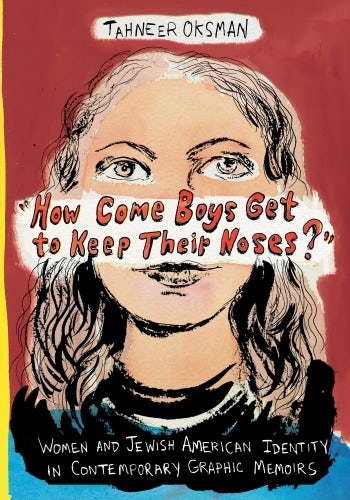American comics reflect the distinct sensibilities and experiences of the Jewish American men who played an outsized role in creating them, but what about the contributions of Jewish women? Focusing on the visionary work of seven contemporary female Jewish cartoonists, Tahneer Oksman draws a remarkable connection between innovations in modes of graphic storytelling and the unstable, contradictory, and ambiguous figurations of the Jewish self in the postmodern era.
Oksman isolates the dynamic Jewishness that connects each frame in the autobiographical comics of Aline Kominsky Crumb, Vanessa Davis, Miss Lasko-Gross, Lauren Weinstein, Sarah Glidden, Miriam Libicki, and Liana Finck. Rooted in a conception of identity based as much on rebellion as identification and belonging, these artists' representations of Jewishness take shape in the spaces between how we see ourselves and how others see us. They experiment with different representations and affiliations without forgetting that identity ties the self to others. Stemming from Kominsky Crumb's iconic 1989 comic "Nose Job," in which her alter ego refuses to assimilate through cosmetic surgery, Oksman's study is an arresting exploration of invention in the face of the pressure to disappear.
- Table of Contents
- Acknowledgments
- Introduction: “To Unaffiliate Jewishly”
- 1. “My Independent Jewish Monster Temperament”: The Serial Selves of Aline Kominsky Crumb
- 2. “What Would Make Me the Most ‘Myself’”: Self-Creation and Self-Exile in Vanessa Davis’s Diary and Autobiographical Comics
- 3. “I Always Want to Know Everything True”: Memory, Adolescence, and Belonging in the Graphic Memoirs of Miss Lasko-Gross and Lauren Weinstein
- 4. “But you don’t live here, so what’s the dilemma?”: Birthright and Accountability in the Geographics of Sarah Glidden and Miriam Libicki
- Conclusion—“Where are they now?”: Translation and Renewal in Liana Finck’s A Bintel Brief
- Notes
- Bibliography
- Index
- Color Plates

